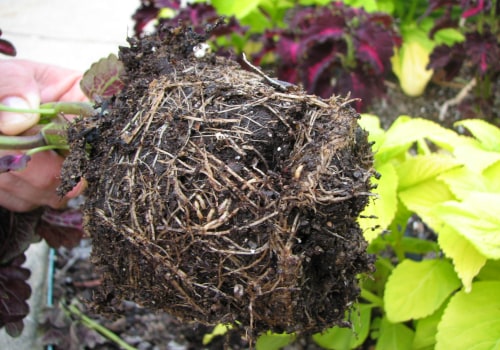Organic soil amendments are an important part of any gardening or landscaping project, as they can help improve soil structure, increase fertility, and provide essential nutrients for plants. There are many benefits to using organic amendments, such as improved water-holding capacity, better soil aeration, better drainage, and more efficient nutrient uptake. Additionally, organic soil amendments can help reduce erosion and provide a better environment for beneficial microorganisms. In this article, we will explore the various benefits of organic soil amendments and how they can help you get the most out of your garden or landscape. Organic soil amendments are often used in gardens or agricultural settings to improve soil fertility.
They are a great way to add essential nutrients to the soil without using artificial fertilizers. Organic amendments can also help retain moisture in the soil, reduce erosion, and increase the soil’s capacity to hold water. Here are some of the benefits of using organic soil amendments:- Improved Soil Structure: Organic amendments can help improve the structure of the soil, making it easier for plants to take up nutrients and water.- Increased Nutrient Availability: Organic amendments can make essential nutrients more readily available for plants to use.- Disease Resistance: Organic amendments can also contain beneficial microbes that can help protect plants from disease.- Improved Water Retention: Organic amendments can also help retain moisture in the soil, reducing water runoff and erosion.- Reduced Compaction: Organic amendments can help reduce compaction in the soil, allowing for better aeration and drainage.- Improved Soil Health: Organic amendments can help promote microbial activity in the soil, which can lead to improved soil health.- Increased Plant Growth: Using organic amendments can lead to healthier plants and increased yields.
Types of Organic Soil Amendments
Organic soil amendments come in many forms, including compost, manures, mulches, green manures, and cover crops. Compost is made from organic material such as food waste, leaves, grass clippings, and garden waste.Manures are animal waste products such as cow manure or chicken manure. Mulches are organic materials such as straw or wood chips that are spread on top of the soil to provide protection and insulation. Green manures are plants that are grown specifically to be plowed back into the soil to provide nutrients and improve the structure of the soil. Cover crops are plants that are grown between seasons to provide nutrients and prevent erosion. Organic soil amendments are an excellent way to improve soil health, reduce compaction, and increase plant growth and yields.
They offer essential nutrients without the use of artificial fertilizers, and can improve soil structure, aeration, drainage, water-holding capacity, nutrient availability, and disease resistance. For these reasons, organic soil amendments should be used in any garden or agricultural setting.











Leave a Comment